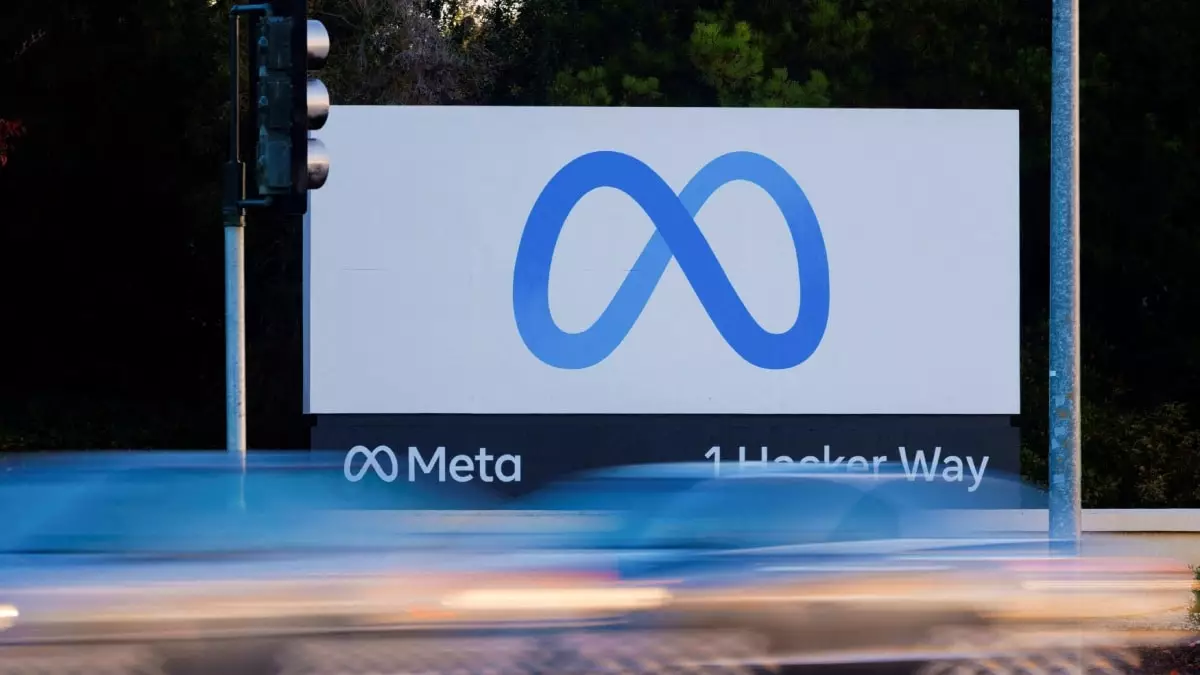The recent €798 million (~$841 million) fine levied against Meta Platforms Inc. by European Union regulators marks a pivotal moment in the ongoing battle against monopolistic practices in the tech world. This decision not only underscores the stringent regulatory environment surrounding large technology companies but also highlights the increasing scrutiny facing Meta, a company already navigating a myriad of challenges.
For the first time, the European Commission has imposed a significant financial penalty on Meta for violating antitrust laws. The case centers around the company’s strategic linking of its Facebook Marketplace service to its main social media platform, a practice deemed unfair to competitors in the online classified ads sector. Margrethe Vestager, the EU’s antitrust chief, articulated that Meta exploited its enormous user base to disadvantage rival platforms that might otherwise thrive. This ruling is a wake-up call not only for Meta but for other tech giants that similarly intertwine their services to leverage market dominance.
The fine comes as Meta faces a slew of legal challenges, including ongoing antitrust litigation led by the Federal Trade Commission in the United States. As the scrutiny intensifies, this puts additional pressure on CEO Mark Zuckerberg’s leadership and strategic direction. The implications are profound: as regulators tighten their grip, companies like Meta must contend with a complex and evolving legal landscape that could determine their very business models.
The ruling also arrives at a politically charged moment. With the re-election of Donald Trump in the U.S., who has been vocally critical of Facebook, Meta finds itself in a dual dilemma — the regulatory landscape in the EU and the fluctuating political climate in the U.S. This dynamic is crucial, as it influences public perception and regulatory attitudes towards digital platforms.
In response to the EU’s ruling, Meta has expressed intention to appeal the decision, describing the fine as disregarding the realities of competition within the European market. Such appeals can extend over several years, reflecting a potentially drawn-out battle that many tech companies are increasingly willing to engage in under the current regulatory scrutiny.
Despite facing fines and reputational damage, Meta reported a healthy $40.6 billion in sales for the quarter ending September 30, showing a growth of 19% year-over-year. This financial resilience indicates that while regulatory pressures mount, the company’s core business remains robust. However, the question remains: how will continued legal issues affect future innovations and their bottom line?
The treatment of Meta by the European Commission contrasts with the case of Amazon, which successfully avoided fines in a similar case involving the alleged misuse of proprietary sales data. Amazon’s proactive measures to resolve operational concerns highlight differing regulatory approaches, raising questions about fairness and consistency within the EU’s enforcement strategy.
The disparity between how the EU treats different tech companies could lead to increased frustration among regulators. As digital marketplaces evolve, so too should the focus on ensuring level competition; the new Digital Markets Act is designed precisely for that purpose, placing stringent requirements on how companies operate.
The ongoing scrutiny of Meta serves as a precursor to the widespread anticipation of deeper structural changes within the tech industry. With increasing calls for the break-up of major firms like Google, the conversation about antitrust in technology is shifting from mere fines to imposing stricter operational boundaries. If the EU can leverage this momentum, we may see a normalization of regulation that calls for transparency and accountability from industry giants.
The EU’s action against Meta is emblematic of a much larger trend that could redefine how tech companies operate in global markets. Incumbent firms may need to adopt more collaborative and fair practices to avoid further punitive measures.
This substantial fine against Meta is not merely a consequence of a single infraction; it reflects a much broader cultural shift towards holding tech giants accountable. The future of digital markets hangs delicately in the balance as regulators, public sentiment, and corporate strategies converge in uncharted territories. The outcome of Meta’s legal challenges and the broader implications of the EU enforcement efforts will shape the industry for years to come, making it a critical juncture for all stakeholders involved.


Leave a Reply